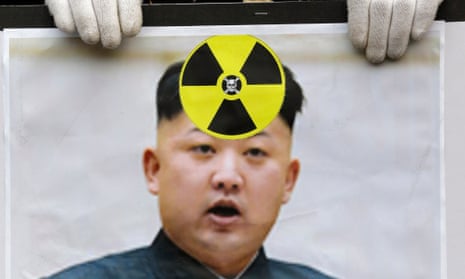The successful outcome of the Iran nuclear talks shows China’s mantra of relying on talks rather than sanctions and threatening force is the correct approach, and one that should be applied to North Korea, the Beijing government’s official newspaper has said.
Under the deal sanctions imposed by the United States, European Union and United Nations will be lifted in return for Iran agreeing to long-term curbs on a nuclear programme that the west suspects has been aimed at creating a nuclear bomb.
China, one of the country’s involved in the negotiations with Iran, had long railed against unilateral sanctions imposed on Iran by the United States and Europe, though it has supported UN ones, and had denounced threats of force.
The People’s Daily, the official newspaper of the ruling Communist party, said the talks sent a “message of hope” to the world that diplomatic efforts were finally able to pay off after more than a decade of tensions.
“The facts show that dialogue and negotiation were the only correct and effective path to appropriately resolve the Iran nuclear issue, and that certain countries threatening to use force on Iran and imposing unilateral sanctions are not acceptable,” the newspaper said.
China was one of the main upholders of the principle of seeking political resolutions, and the Iran talks proved the importance of this philosophy, it added.
“It can be a positive reference for the handling of other regional hotspots, including the Korean peninsular nuclear issue,” the newspaper said in the commentary, published under the pen name Zhong Sheng, meaning Voice of China, often used to give views on foreign policy.
Talks between North Korea, South Korea, the United States, Russia and Japan about Pyongyang’s nuclear ambitions have stalled since North Korea walked away in 2009.
The People’s Daily said China played a crucial role in making sure the Iran talks finally got over the line. “In the most difficult, last mile of the talks, when the deadline was first passed, it was China that solemnly declared: ‘We have bought a proposal and way of thinking to solve the problem’,” the paper said, without giving details.
“People recognise that China’s proposal and way of thinking in bridging the differences between the parties was prominent and did not go unnoticed.”
China and Iran have close diplomatic, economic, trade and energy ties, and the Chinese foreign minister, Wang Yi, has been active in pushing both Washington and Tehran to reach agreement on the nuclear issue.

Comments (…)
Sign in or create your Guardian account to join the discussion